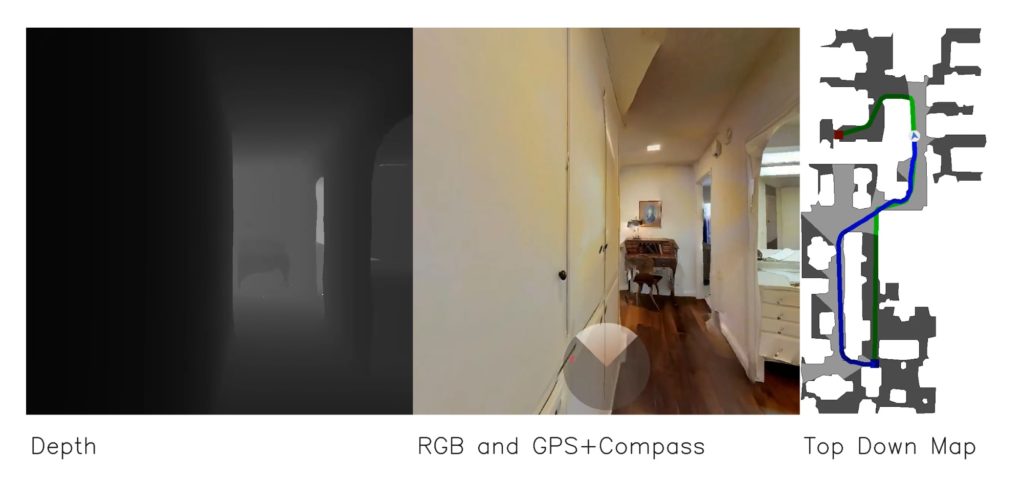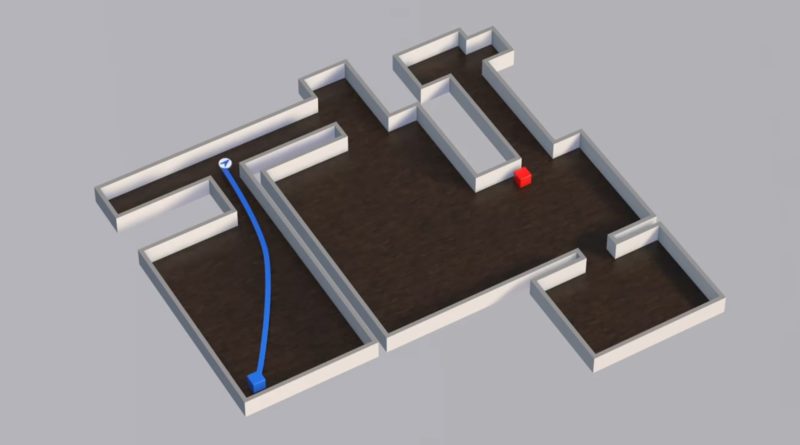Facebook Training Robots to Navigate Without a Map
From college campuses to hotels, delivery robots are becoming a part of our everyday lives. While the tech is promising, there are still some issues to iron out. For instance, most delivery robots navigate using maps and predetermined routes. But maps and environments are constantly changing. AI is going to have to be able to navigate and adapt to unfamiliar areas in real-time. Researchers at Facebook are working on a solution that could greatly expand the abilities of delivery bots.
Facebook AI has created an algorithm that allows a robot to find it’s way in an unfamiliar environment without using a map. During testing, the algorithm called DD-PPO was able to get to the designated location 99.9% of the time using the shortest possible path without any wrong turns or backtracking. The robot utilizes a depth-sensing camera, GPS and compass to help analyze the environment and choose the proper route.
“Our agent also shows the ability to make intelligent choices, such as picking the correct fork in the road. In the example below, the agent’s compass indicates its goal is straight ahead. But it sees there are walls ahead and on the left, so it correctly determines that right is the optimal direction. When the agent makes an incorrect decision, it’s also able to recognize its error and then backtrack and choose the correct path,” said Facebook AI in a blog post.

Robots Trained in AI Habitat Virtual Simulator
Facebook trained the bots for three days using a photorealistic 3D simulator named AI Habitat. This allowed the robot to find its way in a variety of virtual environments such as houses and office buildings. The areas also included things like furniture and corridors to contend with. The bots were able to take about 2.5 billion virtual steps in three days. This equaled about 80 years of human experience.
During training, the bots were initialized at a random starting position and asked to find their destination with no map. They only were able to navigate using their sensors, GPS and cameras. Training using a virtual environment allowed researchers to remove the slowest bots from the group so that faster ones did not have to wait at the finish line each round.
Facebook is currently testing its robot in real world environments using it’s LocCoBot and PyRobot platform. The algorithm cannot yet handle outside areas but Facebook AI feels that it can eventually be adapted to urban environments.
Check out our articles on the world’s first employment agency for robots and test driving self-driving vehicles on a mountain highway.

